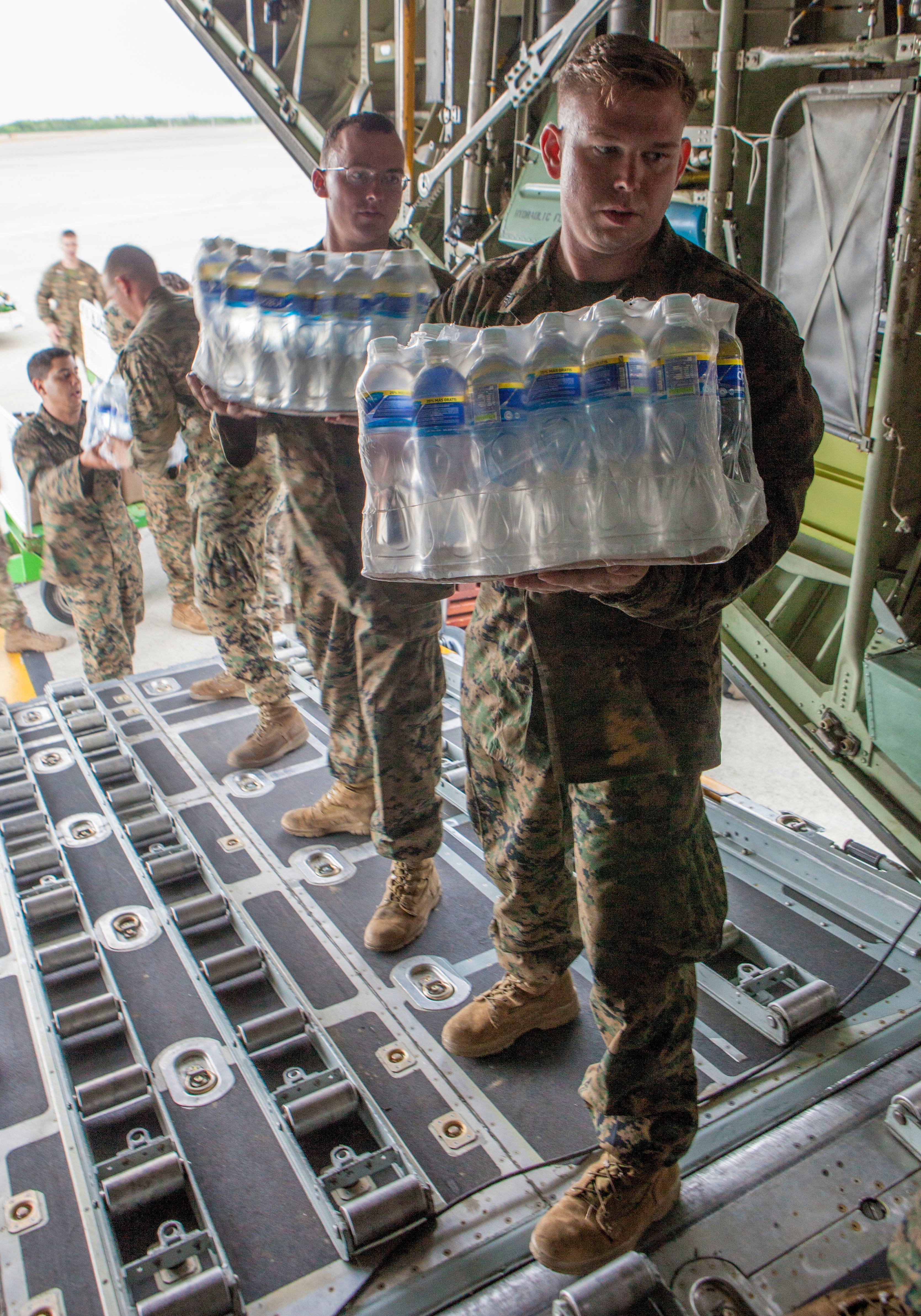Marines are expected to begin delivering relief supplies in areas of Haiti destroyed by Hurricane Matthew, Col. Thomas Prentice, head of the Marine Corps' Central America task force, said on Friday.
"The scope of the devastation is tragic," Prentice told Marine Corps Times. "Flying over the affected areas, there are tens of thousands of families that have been affected. It's truly a tragic situation."
Prentice is commander of the Special Purpose Marine Air-Ground Task Force – Southern Command, which began arriving in Haiti from Honduras on Wednesday. About 200 of the task force's roughly 300 Marines and sailors are expected to arrive in Haiti over the next three days, he said.
"The special purpose MAGTF was specifically manned, trained and equipped to be able to respond and provide humanitarian assistance and disaster relief to situations just like we’re seeing right now in Haiti, Prentice said.
Working with the Office of U.S. Foreign Disaster Assistance, the Marines expect to begin delivering plastic sheeting, food, hygiene kits, blankets and generators to Haitians on Friday, he said.
"Our ability is to respond rapidly, and that’s exactly what we did in this case," Prentice said. "Our goal is to get in there and focus on our integration with OFDA and the embassy staff and simply provide as much help as we can."

Marines with Special Purpose Marine Air-Ground Task Force - Southern Command and soldiers from 1st Battalion, 228th Aviation Regiment load an Ohio Air National Guard C-130H Hercules in preparation to depart Kingston, Jamaica, for Port-au-Prince, Haiti, on Oct. 5, 2016.
Photo Credit: Sgt. Adwin Esters/Marine Corps
By the end of the day, the task force in Haiti is expected to have about 150 service members on the ground and a total of nine helicopters: Marine Corps CH-53E Super Stallions along with Army CH-47 Chinooks and HH-60 Pave Hawks from 1st Battalion, 228th Aviation Regiment.
Hurricane Matthew reportedly dumped up to 25 inches of rain in Haiti, increasing the risk that polluted drinking water could cause a cholera outbreak. Prentice said the task force has a surgeon, corpsmen and preventive medical technicians to advise Marines what not to eat and drink.
"We are completely self-supportive," Prentice said. "We flew in a week’s worth of water and week’s work of food. We’re also bringing in our lightweight water purification systems on the first of our fixed-wing waves of aircraft, which are arriving this afternoon."
Port-au-Prince’s airport only has one runway, which initially hampered relief efforts after Haiti’s 2010 earthquake. But the task force has not had any problems so far flying in personnel and supplies, Prentice said.
The task force also also working with Haitian law enforcement and U.S. officials to make sure security at the airport and distribution sites is seamless, he said.
Prentice could not say how long the relief mission would last. The Marines and sailors in the task force will keep distributing badly needed supplies as long as they are needed, he said.
"Their thoughts and their prayers are with the families here in Haiti that have experienced such tragic loss," Prentice said. "The compassion that our Marines and sailors have is, quite frankly, phenomenal. In the back of their minds, I know that our people are all thinking about how the storm is affecting home."




